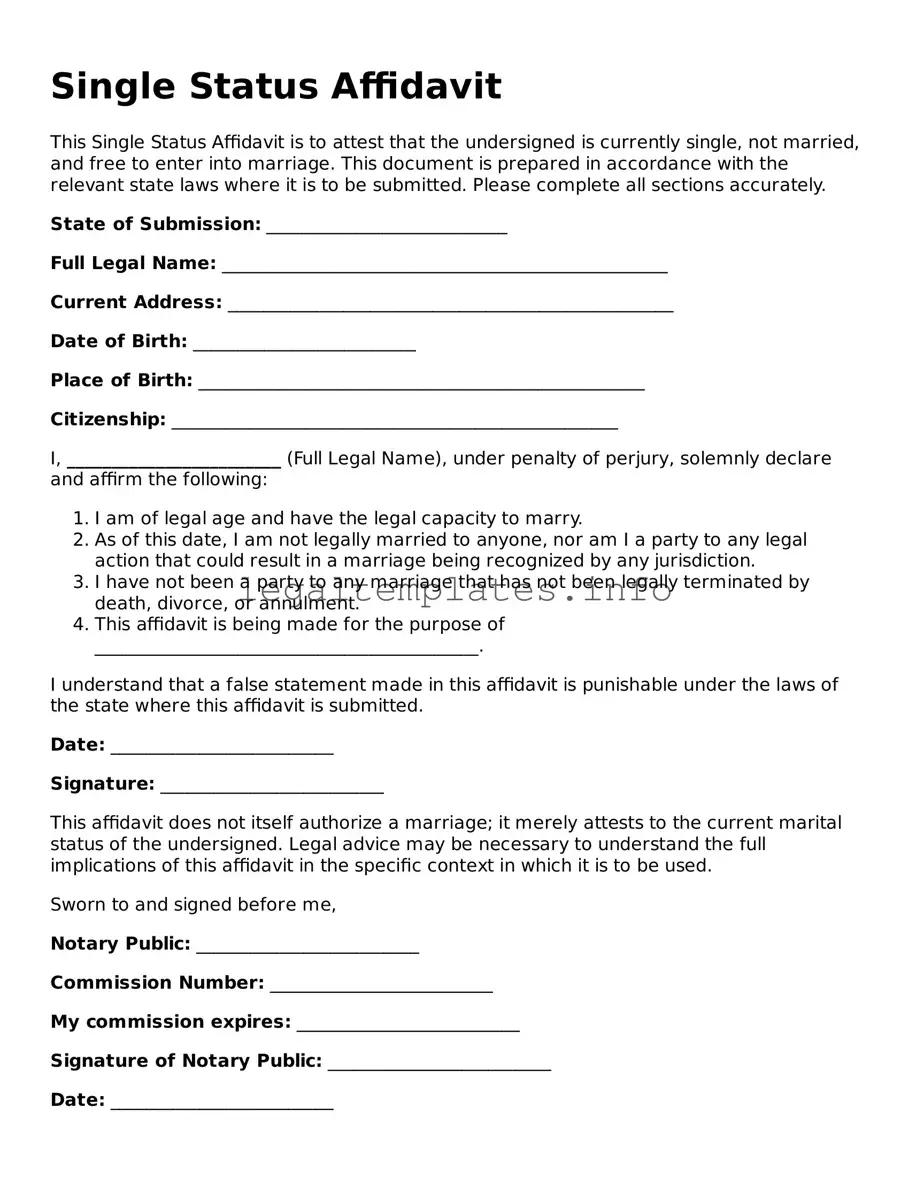What is a Single Status Affidavit?
A Single Status Affidavit is a document where an individual declares their current marital status as single. This legal form is often required when a person wishes to marry abroad, to prove to the foreign government that they are legally free to marry. The affidavit might also be used in other legal proceedings where verifying one's single status is necessary.
Where can I obtain a Single Status Affidavit form?
Typically, you can get a Single Status Affidavit form from your local county clerk's office or a notary public. Some states may offer templates online that can be downloaded for personal use. Ensure the form meets the legal requirements of the destination country if using it for marriage abroad.
How do I get a Single Status Affidavit notarized?
After completing the Single Status Affidavit, you need to sign it in the presence of a notary public. Notaries can often be found at bank branches, law offices, and public libraries. The notary will verify your identity, witness your signature, and then stamp or seal the document, making it officially notarized. Make sure to bring valid identification for this process.
Is a Single Status Affidavit required for marrying in all foreign countries?
No, the requirement for a Single Status Affidavit varies by country. Some countries might not require it at all, while others may have a similar but differently named document as a requirement. It is essential to check the specific marital laws and requirements of the country where you intend to marry.
Can I use a Single Status Affidavit for purposes other than marriage?
Yes, while the most common use of a Single Status Affidavit is for international marriage applications, it can also be required in other legal situations. These could include inheritance matters, adoption processes, and certain types of employment abroad. It essentially serves as proof of your marital status and can be requested by any legal entity requiring such verification.
What information is needed to fill out a Single Status Affidavit?
To fill out a Single Status Affidavit, you will typically need to provide your full legal name, date of birth, place of birth, current residence, and the statement of your single status. Some forms may also ask for past marital history, including the dates and places of any previous marriages and the statuses (divorced, annulled, widowed) that led to your current single status.
What happens if I provide false information on a Single Status Affidavit?
Providing false information on a Single Status Affidavit is a serious offense and can lead to legal penalties, including fines and imprisonment. It’s considered perjury, as you are making a sworn statement regarding your marital status. Always ensure the information you provide is accurate and truthful to avoid any legal complications.
How long is a Single Status Affidavit valid?
The validity of a Single Status Affidavit can vary based on the country or entity requesting it. Some countries or organizations may require the affidavit to be issued within a specific timeframe before its use, such as 90 days. It is crucial to check the current requirements where the affidavit will be submitted to ensure its acceptance.

